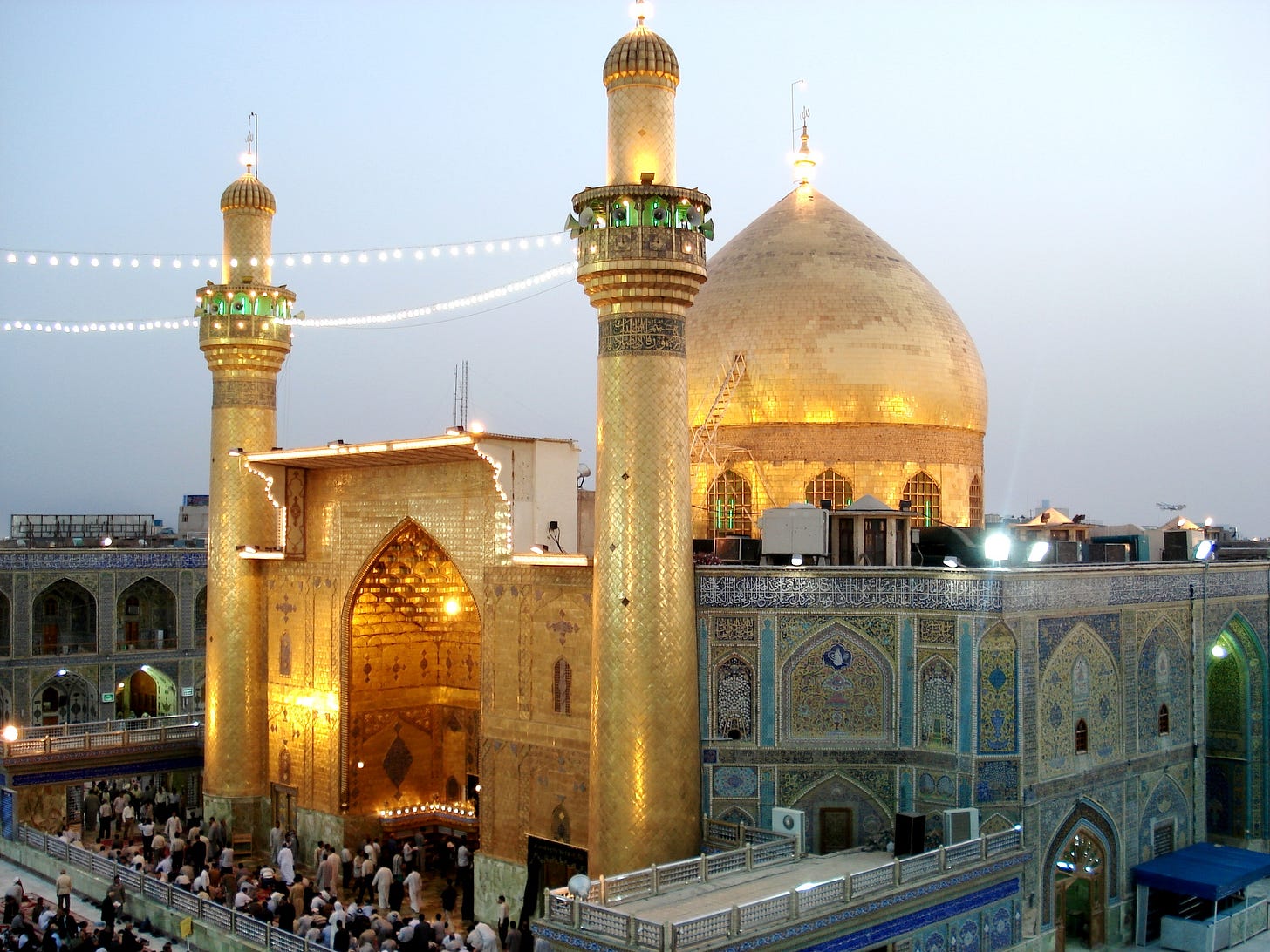wa-bi-wajhika l-bāqī baʿda fanāʾi kulli shayʾin
[I beseech you] by your face, which will remain after everything else ceases to exist.
In general, when you address someone, you look at their face. A person’s face usually identifies them. God’s face is his sacred essence (dhāt), which is everlasting. Everything else will cease to exist because nothing other than God is truly independent. Evanescence is a deficiency (naqṣ) whereas eternal existence is a perfection (kamāl). The face or the identity of the cosmos is sheer evanescence.
Al-Qaṭīfī’s commentary on this line leaves something to be desired.
Regarding al-Baqara (2) 272, which states:
It is not for you [Prophet] to guide them; it is God who guides whoever He will. Whatever charity you give (tunfiqū) benefits your own soul, provided you do it for the sake of God (wajhillāh): whatever you give will be repaid to you in full, and you will not be wronged.
Shaykh Nasir Makarem Shirazi says (in al-Amthal 2:327–328):
In addition to its well-known meaning, “face” (wajh) can also be used to mean essence (dhāt), in which case “the face of God” means the essence of God toward which everyone who gives charity must direct their attention. Based on that, the use of the word “face” in this verse and in other verses is purely for the sake of emphasis. Clearly, “for the face of God” (li-wahji llāh) or “for the essence of God” (li-dhāti llāh) is stronger than just saying “for God” (lillāh). So al-Baqara (2) 272 means whatever charity you give benefits your own soul, provided you definitely do it for the sake of God alone and no one else.
Additionally, the face is the most eminent or the most important part of the body. The most important parts of a person are on his face: sight, hearing, and taste. So, whenever the word “face” is used, the intention is to connote eminence and importance. In this case, the usage is metaphorical. Otherwise, God has no corporeal form.
That’s better, but I’m still not satisfied.
In the section of Safīnat al-biḥār (8:411) titled “They, peace be upon them, are the side (janb) of God, the face (wajh) of God, and the hand (yad) of God,” Shaykh ʿAbbās-e Qummī quotes the following ḥadīth:
[Regarding al-Qaṣas (28) 88, which states “Everything will perish except [God’s] face,”] Imam-e Baqir said: “I swear to God that we are his face and we will not perish until the Day of Judgement since God has commanded creatures to obey us and love us.”
In a narration from Ibn Bābawayh’s al-Tawḥīd, Imam-e Sadiq is asked about the meaning of “Everything will perish except [God’s] face,” and he says, “[His face is] his religion. The Messenger of God and Amīrul Muʾminīn were the religion of God, his face, his eye among his servants, the tongue through which he spoke, and the hand he held over creation. We are the face of God through which God is sought. We will remain among God’s servants as long as God ‘has a need among them’ (mā dāmat lillāhi fīhim rawiyya).”
The expression “has a need among them” requires explanation. According to Majlisī II, it means no true believer, someone whom God has prepared to guide creation, to worship him, and to know him remains. Since the world was ordered through the existence of such people, it is as though God needs them. Alternatively, it refers to the prophets’ and their successors’ need for such people to promote religion; the need is attributed to God in order to glorify such people.
In a narration from Kifāyat al-athar fī l-nuṣūṣ, Imam-e Sadiq says, “Anyone who claims that God has a face like other faces has committed shirk. Anyone who claims that God has limbs like the limbs of creatures is not Muslim—do not accept his testimony and do not eat what he slaughters. God transcends [what such people say.] God’s face is his prophets and his friends.
And others. See Ḥayāt al-qulūb.
Building upon the notion that God’s face is his prophets and his friends, Imam Hasan-e Askari called the twelfth Imam “the face of God toward which those who pray to God turn their faces.”
But it is not just the Shia who hold this view. Masnavi 3.3030, which is the first couplet of a section titled “How Jacob, on whom be peace, was privileged to taste the cup of God from the face of Joseph, and inhale the scent of God from the scent of Joseph; and the exclusion of [Joseph’s] brothers and others from both these [privileges],” states:
ānche yaʿqūb az rukh-e yūsuf bidīd
khāṣṣ-e ū bud ān bi ikhvān kay rasīd
That which Jacob experienced from [beholding] the face of Joseph,
was peculiar to him: when did that [delight] come to [Joseph’s] brothers?
Finally, in his commentary on al-Kāfī, Mulla Sadra says that the face of everything is the thing through which it faces God. That is because God created everything in such a way that it faces its purpose. God placed a natural inclination and desire in everything such that everything inclines toward its purpose. Every purpose has another, higher purpose culminating in the purpose of all purposes. Similarly, every beginning has a beginning culminating in the beginning of all beginnings and the cause of all causes. The beginning of all beginnings must be identical to the the purpose of all purposes since it is not possible for there to be two absolutely perfect things. If there were two absolutely perfect things, there would not be any difference between them and thus no duality either. So God’s essence is the first, the last, the beginning, and the purpose of all things.
Much better. But let’s give Maulana Syed Arif Hussain Kazmi the last word.







Salaams
Reading your spirited commentary, I’m reminded if the Hadith Qudsi wherein Allah t’alla reveals that when He loves his servant He becomes the eye through which he sees and so forth